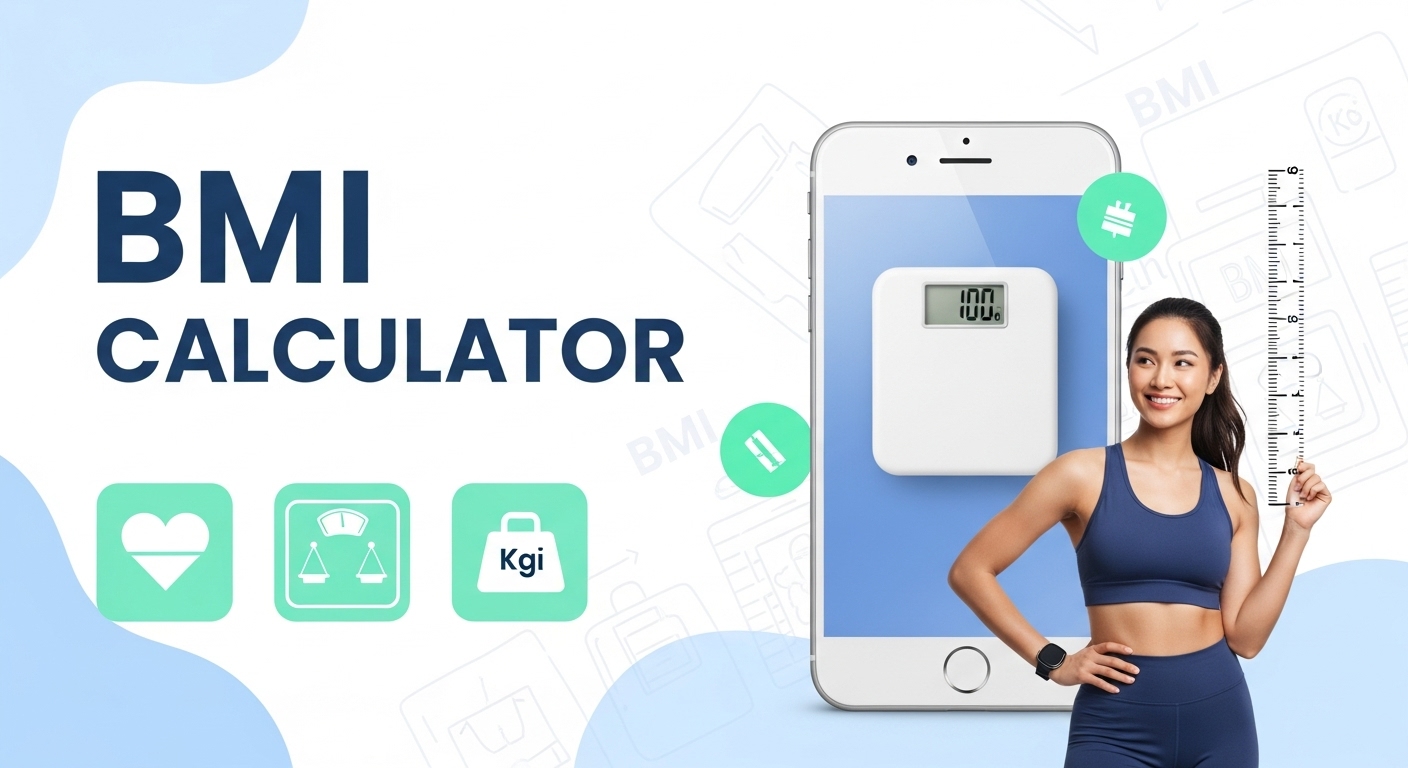Have you ever looked in the mirror and wondered if your weight is actually healthy or if it’s just a number on the scale? I did too. And like many others, I came across the BMI Calculator while trying to figure it out.
Turns out, it’s a pretty straightforward way to get a general idea about your body weight in relation to your height. But there’s more to it than just numbers. In this article, I’ll walk you through what a BMI Calculator is, how it works, what those numbers mean, and how you can use it smartly as part of your health journey.
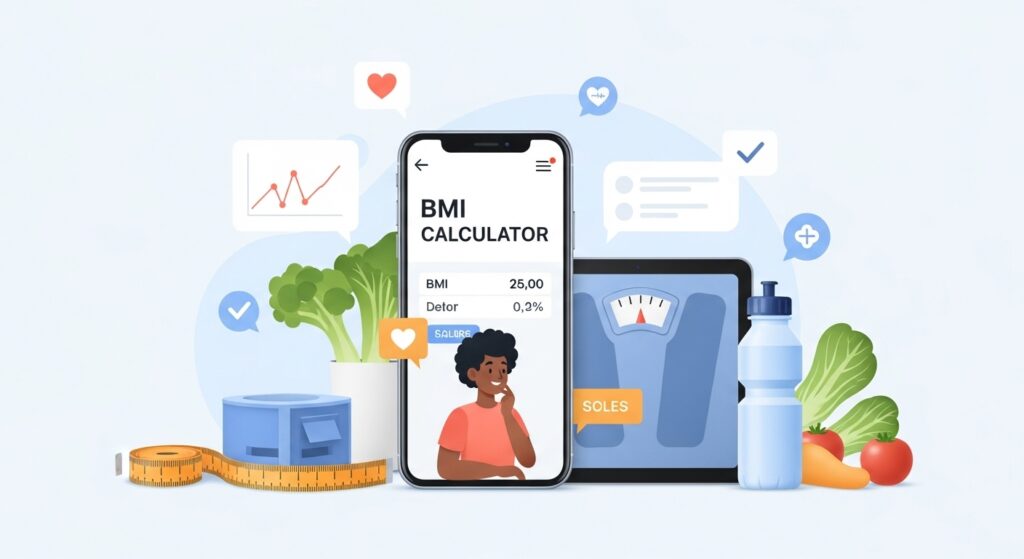
What Is BMI, Really?
BMI stands for Body Mass Index. It’s a number that gives you an idea of whether your weight is in a healthy range for your height. The concept has been around since the 1800s yep, it’s that old and while it’s still used all over the world, it’s not perfect (more on that later).
Think of BMI as a quick health check. It doesn’t tell the whole story, but it can flag whether you might need to look a little closer at your overall fitness and wellness.
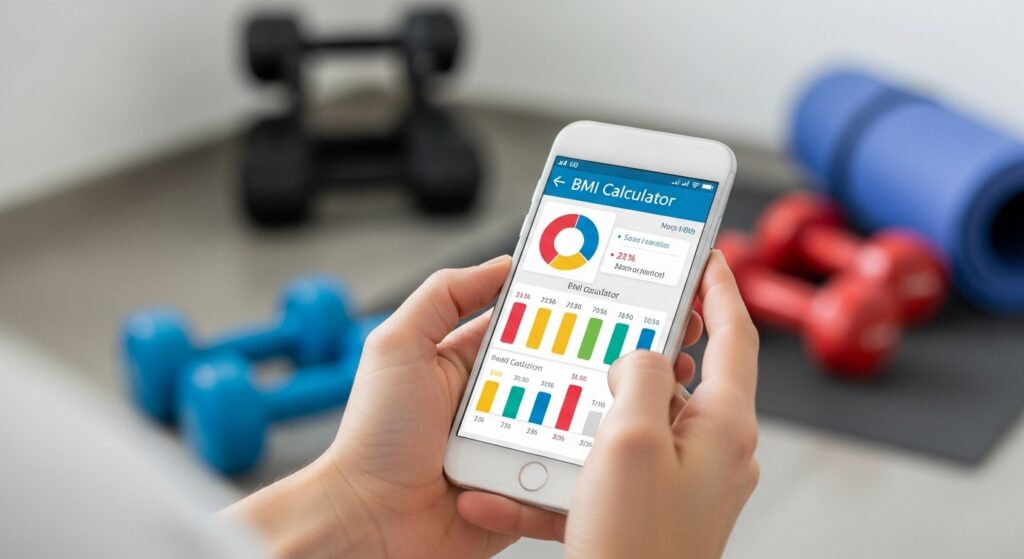
How Does a BMI Calculator Work?
Using a BMI Calculator is easy. You just need your height and weight no need to pull out a measuring tape or do complex math in your head.
Here’s how it’s calculated:
- If you use kilograms and meters:
BMI = weight (kg) / height (m)² - If you use pounds and inches:
BMI = (weight (lb) / height (in)²) × 703
Quick Example:
Let’s say you weigh 70 kg and are 1.75 meters tall.
Your BMI would be:
70 / (1.75 × 1.75) = 22.9
That’s considered a healthy range more on that below.
I still remember the first time I tried a BMI Calculator. I thought I was doing okay, but the result showed I was just entering the “overweight” category. It was the wake-up call I needed to make some small but meaningful changes.
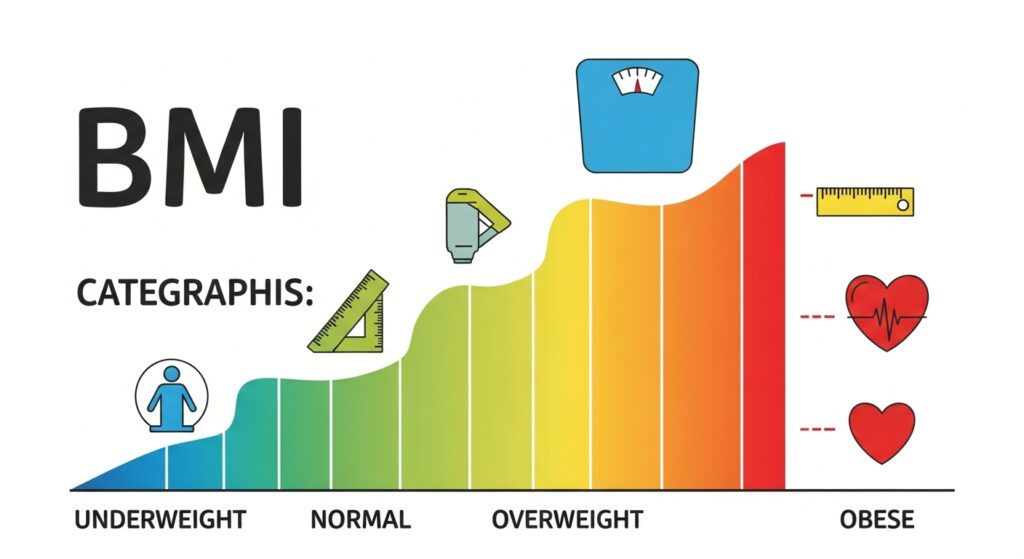
What Do BMI Numbers Actually Mean?
Once you plug in your details, the calculator gives you a number that falls into one of these categories:
| BMI Range | Category |
|---|---|
| Below 18.5 | Underweight |
| 18.5 – 24.9 | Healthy weight |
| 25 – 29.9 | Overweight |
| 30 and above | Obese |
What That Means for You:
- Underweight: You might not be getting enough nutrients, which can affect energy, immunity, and even bone health.
- Healthy weight: You’re in the target zone, but lifestyle still matters diet, activity, and sleep are key.
- Overweight: Extra weight could increase your risk for health issues like heart problems or diabetes.
- Obese: This category means you may be at high risk for serious health problems, and it’s a good idea to check in with a doctor.
BMI Calculator
Enter your weight and height to find your Body Mass Index
Why Does BMI Matter for Your Health?
While BMI doesn’t show body fat or muscle, studies have shown a strong connection between BMI and the risk of health issues.
For example:
- According to Harvard Health, people with higher BMIs (over 30) are more likely to develop heart disease and type 2 diabetes.
- The Centers for Disease Control and Prevention (CDC) also notes that high BMI can increase the risk of certain cancers, joint problems, and sleep apnea.
So, while it’s just one number, your BMI can act as an early warning if you’re heading toward weight-related health risks.

But Wait BMI Isn’t Perfect
This is where it gets important. The BMI Calculator is a general tool, and it doesn’t work equally well for everyone.
Here’s why:
- It doesn’t know the difference between fat and muscle.
A bodybuilder might have a high BMI but very low body fat because muscle weighs more than fat. - It doesn’t show where fat is stored.
Belly fat is more dangerous than fat on your hips or thighs, but BMI won’t show that. - It’s not great for kids or older adults.
Growing kids and seniors with less muscle mass can fall into misleading BMI categories.
One of my friends is super athletic. His BMI puts him in the “overweight” range, but his body fat percentage is under 12%. That’s when I realized BMI doesn’t always tell the full story.
Other Tools You Can Use Along with BMI
If you want a clearer picture of your health, you can pair BMI with some other helpful tools:
- Waist-to-hip ratio – Shows fat distribution
- Body fat percentage – Measured with smart scales or calipers
- Waist circumference – A quick tape measure around your belly can say a lot
- Basal Metabolic Rate (BMR) – How many calories your body burns at rest
Each of these gives a different view of your health, and together, they help you understand your body better.
How to Use a BMI Calculator the Right WayHere’s how to get the most accurate results:
- Measure your height carefully don’t guess!
- Weigh yourself in the morning before eating, ideally in light clothing.
- Use a trusted online BMI calculator there are plenty of free ones from health organizations.
Some apps, like MyFitnessPal or HealthifyMe, also include BMI tracking as part of their dashboard.
BMI Calculator
Healthy Tips No Matter What Your BMI Says
Whether your BMI is in the healthy range or not, here are some things you can do to feel your best:
- Eat more real food – Think fruits, vegetables, whole grains, and lean proteins.
- Move your body daily – Even a 30-minute walk makes a difference.
- Drink more water and cut back on sugary drinks.
- Get enough sleep – Your body needs rest to recover and regulate weight.
- Check in with a professional if you're not sure where to start.
Small, consistent changes add up over time and they work better than crash diets or intense gym plans that don’t last.
When Should You Talk to a Doctor?
If your BMI is much too high or low or changing quickly it’s a good idea to see a doctor or nutritionist. They can help you understand the full picture and come up with a plan that’s tailored to your needs.
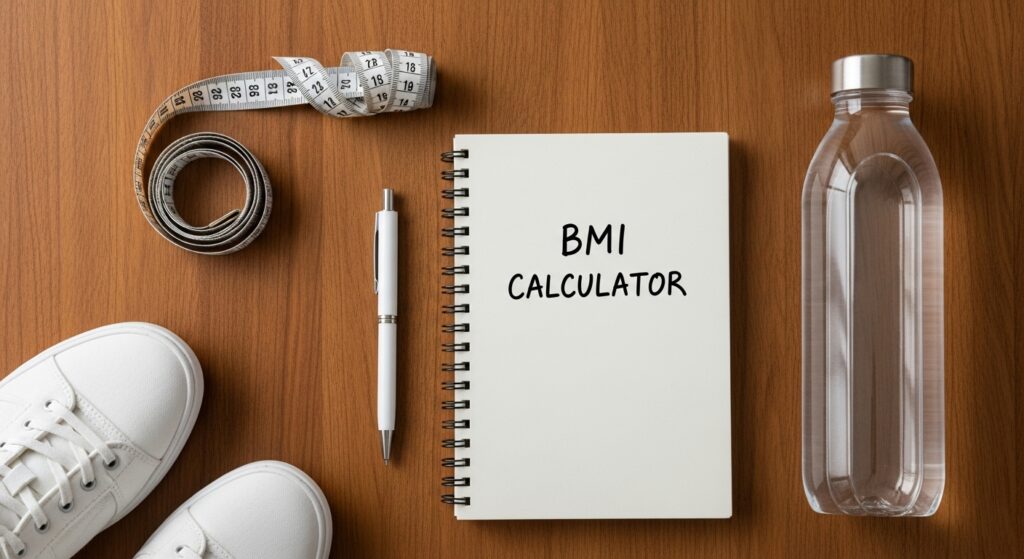
Final Thoughts
The BMI Calculator is a helpful tool for checking where you stand in terms of weight and height. It’s quick, simple, and a great place to start if you’re thinking about improving your health.
But remember, BMI doesn’t define you. It’s just one piece of the puzzle. Listen to your body, stay active, eat well, and focus on how you feel not just a number on the screen.
Use the BMI Calculator as a guide, not a rulebook. After all, your health is more than just math it’s your daily habits, your energy, and your mindset that truly matter.

